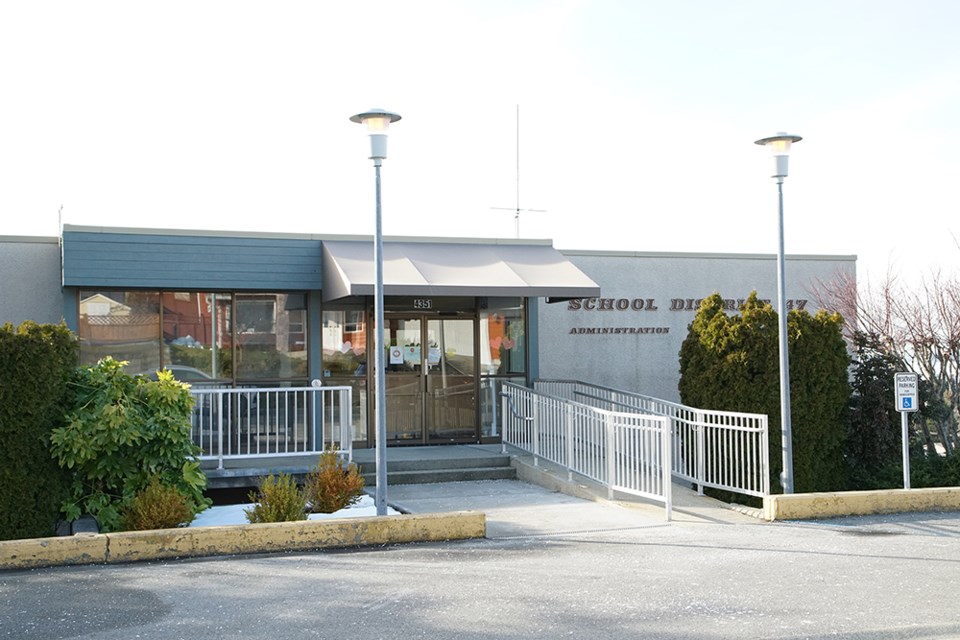School District 47 has been chosen as one of seven additional school districts to receive support from the provincial government for mental health and substance use services.
“We are very pleased to see these crucial mental health and substance use supports coming to School District 47,” said superintendent of schools Jay Yule. “Mental health is important at every stage of life, but for a child or youth trying to go to school each day, these additional resources can make a significant difference to their overall educational success.
“These types of benefits also transcend beyond just the student to both their families and their communities. This multidisciplinary enhancement to our district will have a significant impact.”
According to a media release from BC Ministry of Mental Health and Addictions, more children, youth and families will benefit from seamless mental health and substance use services as the province expands integrated child and youth (ICY) teams to seven BC school districts.
In addition to the qathet region, new multidisciplinary teams are being added in Fraser-Cascade (Hope, Harrison, Agassiz), Kootenay-Columbia (Trail), Mission, Nanaimo-Ladysmith, Okanagan-Shuswap (Salmon Arm) and Pacific Rim (Port Alberni) school districts.
“Integrated child and youth teams make it easier for young people and their families to connect to the care they need, where and when they need it,” stated Jennifer Whiteside, minister of mental health and addictions. “Integrated child and youth teams fill gaps and better coordinate mental health, wellness and substance use care in schools and in the community, making it easier for families to access the help their child needs.”
The release stated that the new teams will connect children, young people and families to counselling, peer and cultural supports, meeting young people where they feel most comfortable: in schools, homes or community settings. Team members may include clinical counsellors connected to schools, youth substance use clinicians, child and youth mental health clinicians, Indigenous elders, or workers supporting Indigenous children and youth, as well as family and youth peer supports, according to the release.
Members of these multidisciplinary teams work together to provide a range of supports, including assessment and screening, consultation, and therapeutic services to children up to 19 years old.
“When a child or youth is struggling with their mental health and with substance use, we know how vital it is to provide them with the supports they need,” stated Mitzi Dean, minister of children and family development. “This is why our government is working together with integrated teams in seven more school districts across our province, to bring even more services to youth where they feel most comfortable.”
The government has heard from students how important their mental health is to their educational success and overall health and well-being, according to Rachna Singh, minister of education and child care.
“Having the integrated child and youth teams working so closely with districts means that children, youth and families will have greater access to additional supports during the vulnerable years of their child’s life,” added Singh.
Integrated child and youth teams provide services to all children, youth and families within a school-district boundary, including those attending First Nations-operated schools, independent schools, Francophone schools, alternative schools or those not in school. Children and youth can connect with ICY teams through various points of contact, such as early years services, school staff, primary care, mental-health and substance-use services and Indigenous-led organizations.




